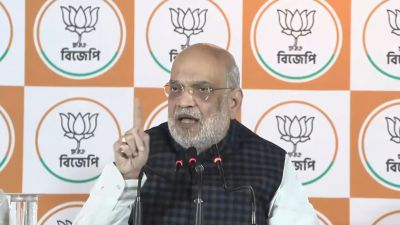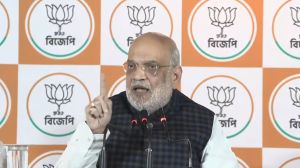Graveyard for auto-rickshaws
NEW DELHI, June 18: The vast expanse of the Delhi Government's Motor Vehicle Inspection Unit at Burari in north-west Delhi will after July 1...

NEW DELHI, June 18: The vast expanse of the Delhi Government8217;s Motor Vehicle Inspection Unit at Burari in north-west Delhi will after July 1 become the graveyard for auto-rickshaws which are more than 15 years old.
More than 2,000 TSRs 8212; some of which were designed in the 1950s 8212; have been piled up at the unit over the past five months. And the government today issued a notice, inviting tenders from contractors willing to dismantle the battered vehicles.
Auto-rickshaw drivers are, nevertheless, a disgruntled lot because they feel that the economics of the move does not favour them. But with the government deciding to scrap all TSRs which are more 15 years old by March 31 next year and freezing new permits, the drivers have no other option.
They have been asked to bring their battered TSRs to Burari, get it dismantled and take back the scrap. They can sell the scrap to anyone, but will have to show the proof to get their permit renewed for running a new TSR.
State Transport Authority STA officials say that the tender 8212; inviting quotations for dismantling TSRs 8212; has been floated because the government wants to implement its decision without incurring any additional expenditure.
Applicants have been asked to furnish details of the hydraulic press, gas cutters, space requirement and number of workers required for the purpose. Applications should include a cheque worth Rs 25,000 as security.
A board of inspectors is being constituted to ensure that each vehicle is scrapped according to the specifications. The board will also retain the chasis number plate for records, after it is removed from the body of the TSR.
A senior STA official at Burari, requesting anonymity, says: 8220;The cost of scrapping each TSR will be borne by the owner. The TSRs will be dismantled in such a manner that the engine is cut into four pieces, the body is pressed into a rectangular shape and the chasis number removed. The idea is to render the vehicle unserviceable.8221;
He adds: 8220;We want to show that we are serious about reducing pollution. We also do not want to snatch a TSR driver8217;s livelihood, that is why we are allowing them to retain the permits and buy new four-stroke engines.8221;
Records available with the STA show that there are 80,240 three-wheelers registered in the city. By not issuing fresh permits and offering the exchange, the government believes that it will be able to ensure that the number of TSRs in the city does not increase.
Says Rakesh, a resident of Vishnu Garden who is hoping that he bags the contract for scrapping the TSRs: 8220;The auto drivers stand to lose the most from this scheme. They have to pay at least Rs 300 to transport a TSR in a tempo, another Rs 400 to 500 for getting it scrapped, and another Rs 300 to carry back the scrap. When he sells the scrap, he will get Rs 1000 to Rs 1,500 at the most.8221;
He speculates that if he bags the contract he will make a profit of at least Rs 200 per TSR after dismantling it. His speculation is shared by several others who were seen making inquiries about the tender at Burari and the STA office at Under Hill Road.
Rajesh, a TSR owner from Paharganj whose three TSRs are waiting to be scrapped, blames the government for not taking the interest of the drivers into consideration while floating the tenders.
He says: 8220;What will we do with the scrap? If we had sold the battered autos to a scrap-dealer, we would have got anything between Rs 3,500 to Rs 5,000. Components like brake drums, engine chambers, wheels and axles of almost all the autos are in good condition.8221;
The government, he says, should give some money to the affected TSRs drivers because a new auto-rickshaw fitted with a four-stroke engine costs almost Rs 70,000. 8220;Besides, it will be the dealers who will benefit the most along with the government by selling new TSRs.8221;
The STA and transport ministry, however, contend that the arithmetic has to stop somewhere if the pollution level is to be reduced.
8220;There will be many persons who will resist the move. But Delhiites in general will be pleased if the air is cleaner. As of now, we are not forcing anyone to get his vehicle scrapped. All these people who have come so far, have done so voluntarily,8221; says an official.
- 01
- 02
- 03
- 04
- 05































